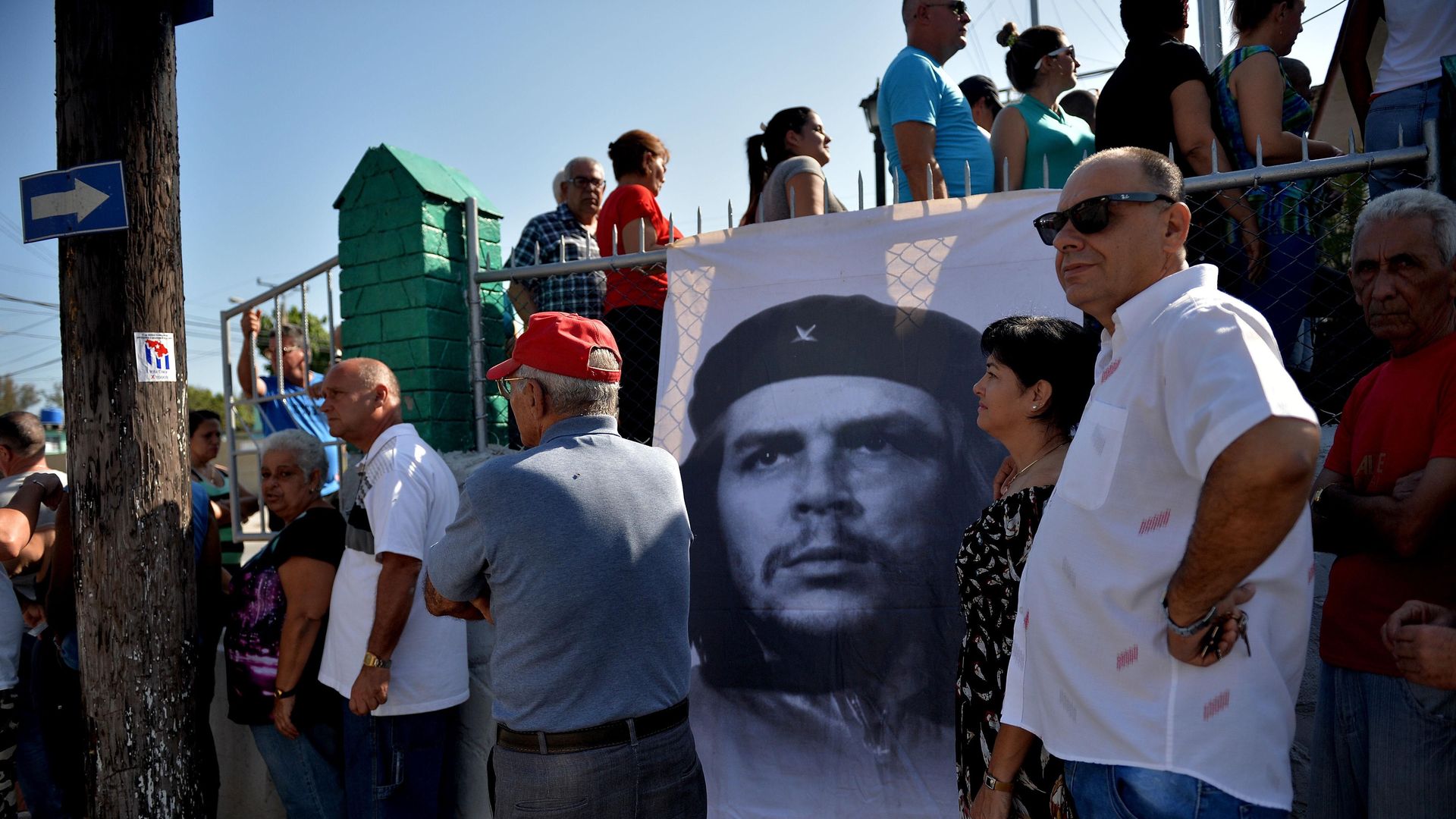Mar 12, 2018
Cubans go to polls in first step toward post-Castro future
Add Axios as your preferred source to
see more of our stories on Google.

Cuban voters line up outside a polling station in Santa Clara. Photo by YAMIL LAGE/AFP/Getty Images.
Add Axios as your preferred source to
see more of our stories on Google.

Cuban voters line up outside a polling station in Santa Clara. Photo by YAMIL LAGE/AFP/Getty Images.